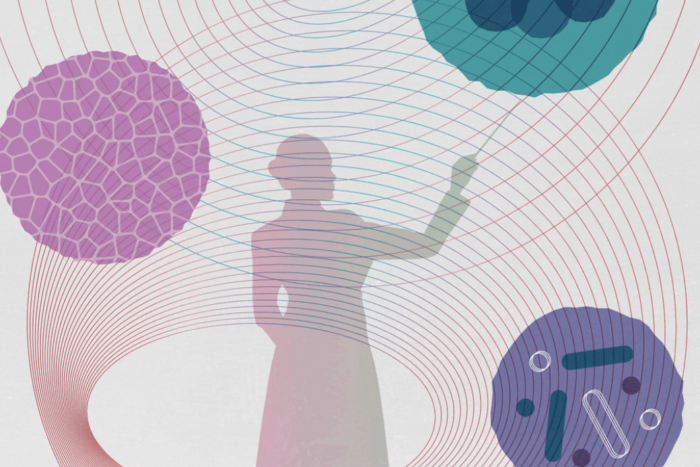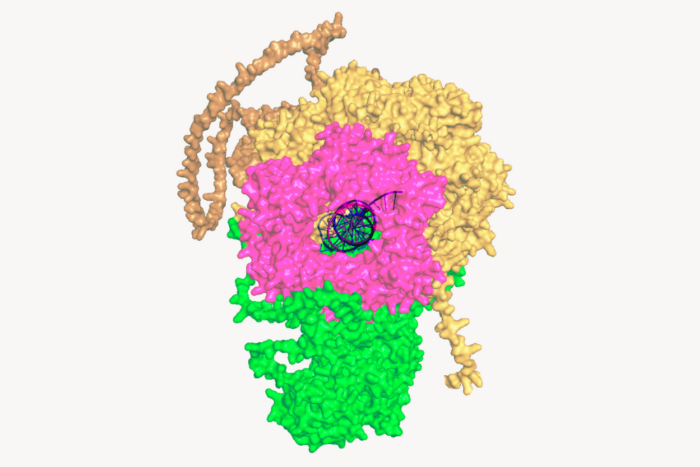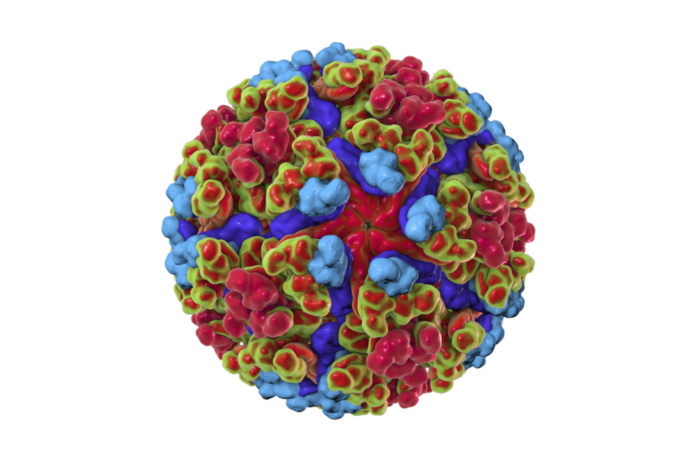Lewis Thomas Prize Honors Max Perutz
Award from The Rockefeller University recognizes scientists as poets
Nobel laureate, molecular biologist and author Max Perutz, Ph.D., is the recipient of the 1997 Lewis Thomas Prize, which honors scientists for their literary achievements and is awarded by The Rockefeller University.
“The Lewis Thomas Prize recognizes the scientist whose voice and vision can tell us of science’s esthetic and philosophical dimensions, who gives us not merely new information but cause for reflection, even revelation, as in a poem or painting,” explains Nobel laureate Torsten N. Wiesel, M.D., president of the university.
A well-known science essayist, Perutz contributes regularly to the New York Review of Books. He has written several scientific texts as well as Is Science Necessary?, a collection of essays published in 1989 that discusses the importance of science and scientists.
As a scientist, Perutz pioneered the use of X-ray crystallography to study the structure of proteins, establishing the modern field of structural biology. In 1953, he solved the hemoglobin molecule’s complex structure by comparing the X-ray diffraction pattern of crystals of native hemoglobin with that of hemoglobin combined with atoms of mercury, yielding a complete model of hemoglobin in 1959. In 1957, using the heavy atom method, Perutz’s colleague John Kendrew established the structure of the smaller myoglobin molecule. These achievements, the first proteins for which structures were solved, earned Perutz and Kendrew the Nobel Prize in Chemistry in 1962.
Perutz received the Lewis Thomas Prize during ceremonies at The Rockefeller University on Friday, May 2. In an accompanying lecture, “Science is No Quiet Life,” Perutz reflected on the scientific process and his distinguished career.
Perutz is the fifth person to receive the Lewis Thomas Prize, established in 1993. The late Lewis Thomas, M.D., an award-winning author and scientist who served in many positions including dean of the New York University School of Medicine and president and chancellor of the Memorial Sloan-Kettering Cancer Center, received the prize in 1993. In 1994, The Rockefeller University presented the prize to Nobel laureate, molecular geneticist and author François Jacob, M.D., Ph.D. In 1995, Abraham Pais, Ph.D., Detlev W. Bronk Professor Emeritus at Rockefeller and an eminent physicist and science writer, received the prize. The 1996 winner was mathematical physicist and author Freeman Dyson, professor emeritus of physics at the Institute for Advanced Study in Princeton.
“Dr. Perutz’s essays explore a remarkable range of scientific topics with the same lucidity and precision that has characterized his scientific work,” says Wiesel. “In the preface to his book, Is Science Necessary?, he spoke directly to the spirit of the Lewis Thomas Prize when he noted that `Imagination comes first in both artistic and scientific creation.'”
Born in 1914 in Vienna, Austria, Perutz studied chemistry as an undergraduate at Vienna University, moving to England in 1936 to pursue a doctoral degree, which he received from the University of Cambridge in 1940. In 1947, he created the Medical Research Council Unit for Molecular Biology at the Cavendish Laboratory at Cambridge, which he directed until 1962. That year, he founded the Medical Research Council Laboratory for Molecular Biology, of which he served as chairman until 1979. He remains a member of the Laboratory’s staff.
In reviewing Perutz’s Is Science Necessary?, Hugh Trevor-Roper of the Spectator said, “He makes the most difficult subjects intelligible and writes with the warmth, humanity, and broad culture which has always characterized the great men of science.” Also, Gerald Kaufman, of the Manchester Evening News, wrote of the essays, “They turn the world of science and medicine into a marvelous land of adventure, which I was thrilled to explore in the company of this wise and humane Nobel prize-winner.”
Perutz is a member of numerous scientific honor societies, including the Royal Society, American Academy of Arts and Sciences, Austrian Academy of Sciences, the Royal Netherlands Academy, French Academy of Sciences, Bavarian Academy of Sciences, the National Academy of Sciences of Rome and U.S. National Academy of Sciences.
In addition to the Nobel Prize, Perutz has received the Ehrenzeichen für Wissenschaft und Kunst, the Royal Medal and the Copley Medal.


